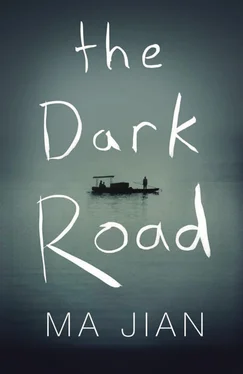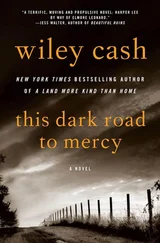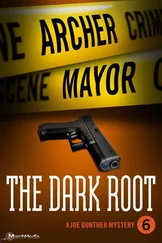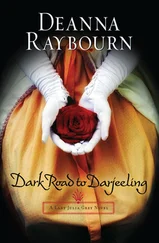‘I know I could pick up a job dismantling e-waste, but it’s dangerous work,’ the man says to Kongzi. ‘Extracting lead and silver is the worst. The sulphuric acid you have to use produces fumes that can make men impotent. I much prefer working on a building site.’
‘Most of the migrants here seem to be family planning fugitives,’ Kongzi says. ‘I always see loads of kids scampering outside the factories and workshops.’ Despite all he’s heard to the contrary, Kongzi is confident that Heaven’s pollution won’t prevent Meili falling pregnant again.
‘Those children are the lucky ones, the survivors. What you don’t see are the deformed and handicapped ones that are abandoned by their parents and left to die. I once saw a dead baby with two heads floating in that canal down there.’
‘The One Child Policy’s responsible for that,’ Kongzi says. ‘Don’t blame the parents — they just want to make sure they’ll have a healthy child to look after them in their old age. Why else would anyone abandon their own flesh and blood?’ Kongzi looks away, conscious that he’s trying to justify to himself his own abandonment of Waterborn. ‘So, where do you want me to drop you off?’ he asks. In his mind, he pictures Heaven’s waterways coursing through the human body: the oesophagus to the north, a large stomach in the centre and a long winding colon to the south. He’s now sailed through every polluted one of them. They are fed by clear streams that flow from a distant mountain, on whose summit stand an ancient temple, a bathing house and a convalescent home.
‘Drop me at Chen’s Nurseries,’ the man says. ‘I’m going there to buy rice seedlings. A county leader is visiting the township next week, and we need to plant rice on the barren fields along the road that he’ll be driven down. It’s only a temporary job, but they’re paying us fifty yuan a day.’
‘But rice only grows in paddy fields. How will you irrigate all that dry land?’
‘It’s only for show, you fool! We’ll plant the seedlings in the fields the night before he arrives, and with any luck they’ll stay upright until the next morning. He’ll be gone by the afternoon.’
‘So you’ve been here eight years? You must have made a fortune by now.’ After only three months in Heaven Township, Kongzi and Meili have saved four thousand yuan. Last week, they sent a thousand yuan to both their families. After he and Meili fled Kong Village, his parents and close neighbours were heavily fined. One neighbour was given a double fine, and when she was unable to pay it, her house was demolished. She took to the road, apparently, and is now begging on the streets of Kashgar.
‘These days, for a man to be considered wealthy he must have a nice house, a private car and a mistress on the side,’ the man says. ‘I’m a long way from that. I have made a lot of money, it’s true, but I’ve spent it all in the hair salons.’ He laughs broadly, showing his teeth like a monkey.
Kongzi smiles, and presses the accelerator. On the banks above, migrant workers are raking out red, yellow and green plastic granules over square bamboo mats, like farmers raking rice left out to dry in the sun.
‘Good idea of yours to start a water-delivery business,’ the man says. ‘The tap water in Heaven is disgusting. Someone tried digging a well once to see if he could draw clean water, but it came up as red as Oolong tea. I’ve heard that the groundwater’s polluted with toxic chemicals to a depth of ten metres.’
Kongzi proceeds up a river flanked by telegraph poles and empty fields. Casting a backward glance over the boat’s gurgling wake, he sees Heaven reflected in the green waters of Womb Lake, shimmering like a city of carved jade that appears more exquisite and unearthly the further it recedes.
KEYWORDS: Tang poem, deep-fried sparrows, feng shui, armpit, petals, clamour of wind.
THE INFANT SPIRIT sees Father perched on a plastic stool, sipping green tea and listening to Nannan chant a Tang poem in her high-pitched voice.
‘Terrible!’ Father shouts, rolling his eyes in frustration. ‘Recite it again, and if you forget one word this time I’ll slap your hand!’
‘Daddy’s so nasty,’ Nannan says, turning to Mother.
‘You know what they say, Nannan,’ Mother replies, ‘“Hitting means hate, cursing means love.”’
Father reaches down to pick some sleep dust from the corner of Nannan’s eye, and says: ‘All right then, just give me the two last lines.’
‘“Who knows how many… petals fell?”’
‘And the line before that?’
‘You only asked for the last two!’ Nannan says, stamping her feet.
‘But that was one line, not two. Never mind. Just start again from the beginning.’ Father is drinking Oolong tea in the Guangdong style. After steeping the leaves briefly in a small earthenware pot, he pours the tea into a thimble-sized porcelain cup and takes tiny sips.
‘“Spring Dawn” by Meng Haoran,’ Nannan announces, then throws her shoulders back and takes a deep breath. ‘“Slumbering in spring, I missed the dawn, / Everywhere birds are singing. / Last night in the clamour of wind and rain, / Who knows how many petals fell?”’
‘Wonderful!’ Mother says, spooning some deep-fried sparrows onto a serving plate. ‘Now come and finish your supper.’ Meili bought the birds from a stall this evening as the vendor was packing up and selling his produce for half price. When she chopped them up before frying them, she found plastic granules, screws and metal caps inside their stomachs.
The two front stilts of the metal hut are planted in the riverbed, so whenever a boat passes everything sways from side to side and bottles topple off the table. The interior of the hut looks quite homely now. Meili has covered the floor with a white plastic mat which she found on the banks and keeps scrupulously clean, and has papered three walls with magazine pages and stuck a poster of Niagara Falls on the fourth. The only unsightly part of the room is by the door, where the food is cooked and the bags are stored. In the light from the naked bulb hanging from the ceiling, the brightly coloured plastic objects in the room shine out.
Father takes a swig of beer. Feeling a sparrow bone slip from the corner of his mouth, he quickly spits it onto the floor. Mother picks it up with her chopsticks and puts it on the table. ‘Where are your manners?’ she says. ‘We’re not eating in the fields now. To think you were once a respected teacher!’
‘Stop putting on airs. You want us to behave like people from the towns? Heaven might look urban, but officially it’s still categorised as rural.’
‘No, it’s a development zone,’ Mother replies. ‘I’ve seen foreigners walking down its streets. From now on, you must wear shoes whenever you go out. It’s so uncivilised to wander around in bare feet.’
Nannan is staring at the television in the corner, watching three children follow a blue alien onto a flying saucer. ‘I wish I could get on it too!’ she cries, and points her tongue at the screen.
‘I haven’t had a period since we arrived in Heaven, Kongzi,’ Mother says quietly. ‘That’s almost four months. But I can’t be pregnant. I haven’t felt sick at all.’
‘Four months? You must be pregnant, then. I told you: if I plant enough seeds, one of them is bound to sprout! This time, make sure you give me a male heir. Ah, the vitality of the Kong bloodline is indestructible! I put it down to the feng shui of the Temple of Confucius in Qufu. Think about it: the sage’s tomb is in the centre, his sons’ tombs to the left, his grandsons’ to the right. Exactly as the saying goes: “Surrounded by offspring on either side, in prosperity your descendants will always abide.” No wonder there are now three million Kongs scattered around the world.’ Smiling proudly, he waves his chopsticks over the dog-eared astrology books stacked beside him.
Читать дальше












